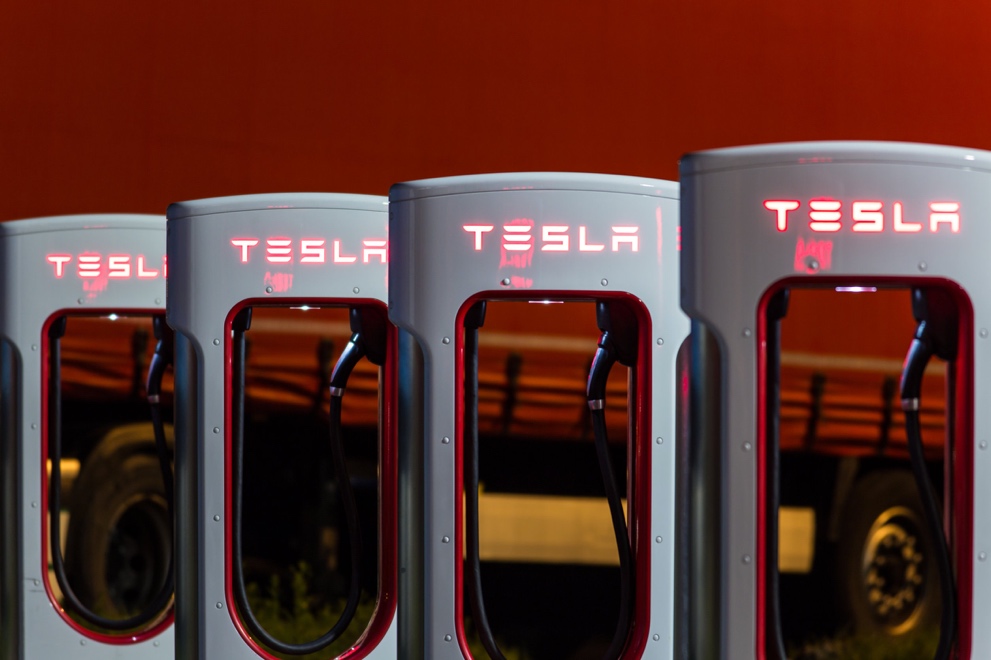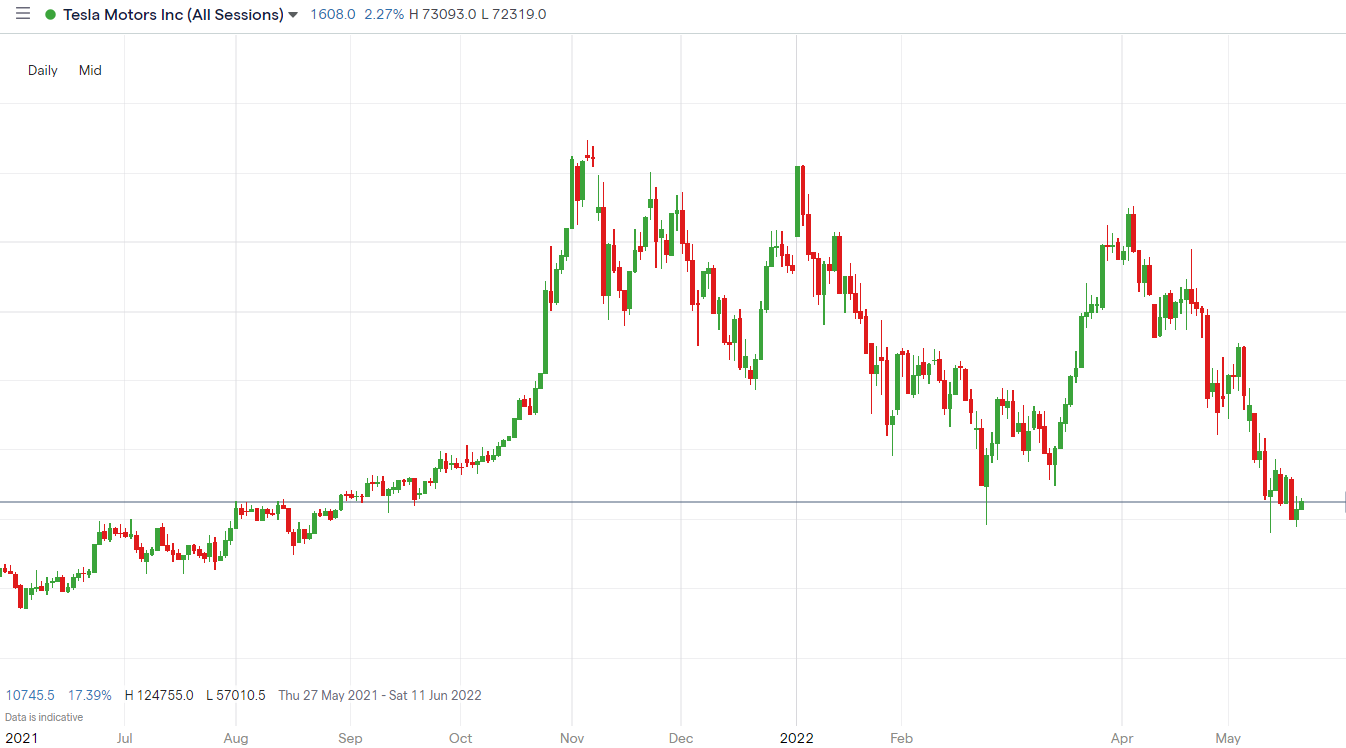Key points:
- Tesla cut from S&P 500 ESG Index
- What is the S&P 500 ESG Index?
- Why was Tesla Cut?
- Tesla Shares Slide as Musk Focuses On Twitter Acquisition
It was revealed on May 18 that Tesla stock was removed from the S&P 500 ESG Index, despite the company's clear focus on making what is regarded as environmentally friendly electric vehicles, solar panels, and battery packs.
Here is Tesla’s current CSR policy.
The news resulted in a barrage of tweets from Tesla CEO Elon Musk.
“Exxon is rated top ten best in world for environment, social & governance (ESG) by S&P 500, while Tesla didn't make the list! ESG is a scam. It has been weaponized by phony social justice warriors,” Musk wrote.
Exxon is rated top ten best in world for environment, social & governance (ESG) by S&P 500, while Tesla didn’t make the list!
ESG is a scam. It has been weaponized by phony social justice warriors.
— Elon Musk (@elonmusk) May 18, 2022
What is the S&P 500 ESG Index?
The S&P 500 ESG Index is described as a broad-based, market-cap-weighted index that is designed to measure the performance of securities meeting sustainability criteria. It also maintains a similar overall industry group weighting as the S&P 500.
There are currently over 300 stocks in the ESG index, including companies such as Apple, Amazon, Microsoft, and Alphabet.
The goal of the index is to maintain a similar industry group weighting to the S&P 500 while enhancing the sustainability profile.
Why Was Tesla Removed From the S&P 500 ESG Index?
The sustainability-focused index underwent its fourth annual rebalancing to provide investors with broad-based market exposure to stocks that have “meaningful and measurable sustainability-focused enhancements.”
And Tesla, which is the fifth-largest holding in the S&P 500, was left out after the latest rebalancing with S&P Global stating that it was ineligible for inclusion due to its low S&P DJI ESG Score, which hit the bottom 25% of its global industry group peers.

Other companies left out include Berkshire Hathaway, Johnson & Johnson, Meta, Chevron, and Wells Fargo.
S&P Global addressed Musk’s criticism in a blog post, stating that the industry group on which Tesla is assessed (Automobiles & Components) saw its average S&P DJI ESG Score increase overall, so, while Tesla’s score has remained relatively stable, it declined relative to its global industry group peers.
Some of the reasons given for Tesla’s decline included its lack of low carbon strategy and codes of business conduct and its current and potential future exposure to risks.
“Media and Stakeholder Analysis, a process that seeks to identify a company’s current and potential future exposure to risks stemming from its involvement in a controversial incident, identified two separate events centered around claims of racial discrimination and poor working conditions at Tesla’s Fremont factory, as well as its handling of the NHTSA investigation after multiple deaths and injuries were linked to its autopilot vehicles,” explained S&P Global.
“While Tesla may be playing its part in taking fuel-powered cars off the road, it has fallen behind its peers when examined through a wider ESG lens,” they concluded.
What Now?

A company being added to the index often encourages its inclusion in other mutual funds and ETFs. There is always the opportunity to be reviewed for inclusion in years to come, but given it only made it to the ESG index by a slim margin last year, there is no guarantee it will make the cut at the next rebalancing.
Tesla stock closed down 6.8% on the day it was removed from the ESG index, while it has declined over 32% so far in 2022. Tesla’s P/E ratio, as of May 19 is 96.31.




